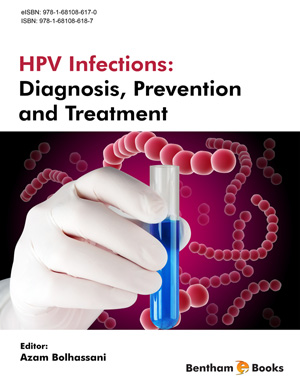Abstract
Genital HPV infections are the most common of all sexually transmissible agents. The HPV life cycle is dependent on host cell differentiation with late viral events such as structural gene expression and viral genome amplification in the upper layers of the stratified epithelium. Indeed, the virus destabilizes host chromatinremodeling factors to facilitate viral replication and transcription. Generally, the life cycle of the virus is divided into major steps including entry, establishment of the nonproductive infectious state, maintenance of the non-productive infectious state, and productive stage. In this chapter, we briefly explain transmission and the life cycle of HPVs in host cells.
Keywords: HPV infection, Life cycle, Transmission.






















